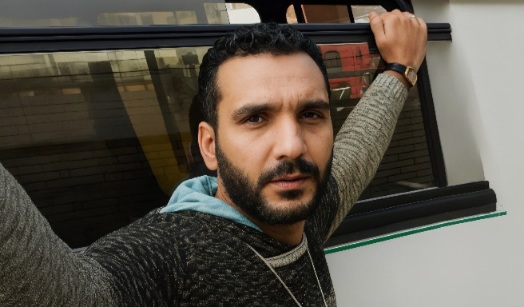Ahmed Mostafa, known as Ahmed Gezira, 35, died on 10 November 2025 inside Imbaba Police Station in Giza Governorate, amid growing suspicions that he was subjected to torture and ill-treatment throughout nearly three weeks of detention.
Ahmed had been in good health prior to his arrest and had no known medical conditions, raising serious and troubling questions about the circumstances that led to his deterioration and subsequent death while in custody.
Testimony from individuals inside the station indicates that harsh detention conditions and ill-treatment were a direct cause of his declining condition and death. Meanwhile, the authorities are accused of pressuring his family to sign a statement asserting that the death was due to “acute circulatory collapse” in exchange for releasing the body from the morgue at Imbaba Chest Hospital.
Accounts from within the station also reveal suffocating levels of overcrowding inside the holding cells. The facility reportedly houses around 700 detainees in just four of its eleven rooms, allowing no more than 35 centimetres of space per person. Such conditions fall far below even the most basic humanitarian standards, rendering daily life inside custody effectively inhuman. Complaints have also emerged relating to inadequate food, a ban on visits, and the absence of essential medical care.
Ahmed Mostafa’s death reflects a wider reality concerning the absence of minimum rights protections inside Egyptian detention facilities. Persistent patterns of abuse, including extreme overcrowding, shortages of food and medical care, and systematic neglect, which continue to inflict severe harm on detainees’ physical and mental wellbeing, pointing to a recurring pattern of institutional negligence and an almost total lack of independent oversight.
Efforts to coerce the family into endorsing a pre-arranged medical narrative for the cause of death constitute a grave indicator of opacity and an attempt to obscure any possibility of investigating the circumstances of the incident. Such practices violate the family’s right to truth and society’s right to accountability.
It is impossible to overlook that Egypt’s current detention environment has become fundamentally incompatible with the most basic standards of human dignity. Psychological and physical pressures, coupled with the absence of health safeguards, are routinely used as tools for managing detainees in a context where effective oversight and mechanisms for investigating abuses are effectively non-existent.
Ahmed’s death necessitates the immediate opening of a serious, independent investigation to establish whether police personnel or detention-centre management bear responsibility for the conditions that may have contributed to his death. The inquiry must examine the overcrowding, procedures for handling detainees, and the reasons behind the authorities’ refusal to provide the family with clear information about his condition in the period leading up to his death.



























